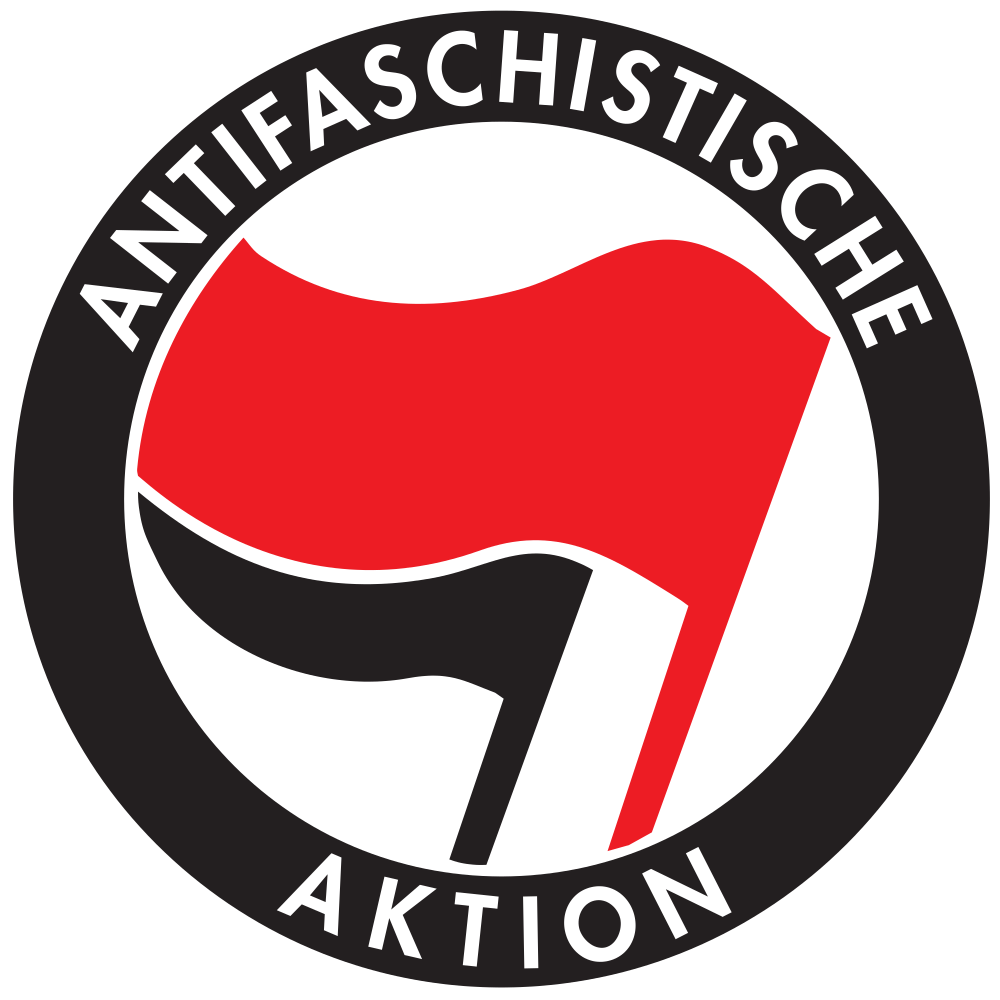Antifa Handbook Writer Speaks at Gallatin
The Antifa logo
September 14, 2017
Mark Bray, a key organizer of the Occupy Wall Street movement and author of “Antifa: The Anti-Fascist Handbook,” argues that violent response to organized far-right fascism is both necessary and legitimate. He describes his book as an “unabashedly partisan call to arms that aims to equip a new generation of anti-fascists with the history and theory necessary to defeat the resurgent Far Right.”
Speaking at NYU in an event sponsored by Gallatin’s Human Rights Initiative, Bray, a historian of human rights, terrorism and political radicalism in Modern Europe at Dartmouth College, delved into the pertinent history of militant anti-fascist movements of the 20th century dating back to Italy’s first anti-fascist group, Arditi del Popolo (the People’s Daring Ones), who organized to combat Mussolini’s Blackshirts in 1921. Members of NYU Against Fascism were in attendance.
Bray further compares the similarities and common goals of past European and North American anti-fascist movements of the 20th century, with contemporary anti-fascist movements that have seen a widespread resurgence in response to the rise of far-right, white nationalist and neo-Nazi groups in the United States and Europe. This includes “singing over fascist speeches, to occupying the sites of fascist meetings … to physically disrupting their newspaper sales, demonstrations and other activities,” according to Bray’s book.
In the United States, he connects the resurgence in far-right political violence to actions of the Trump administration.
Bray explains in the first line in the introduction of his book that he wishes “there were no need for this book. But someone burned down the Victoria Islamic Center in Victoria, Texas, hours after the announcement of the Trump administration’s Muslim ban.”
Bray points out that in 2017, following Trump’s election, instances of violent homophobia, taunts toward Mexican-American students to “build that wall” and desecrations of Jewish cemeteries from Brooklyn to St. Louis increased.
In the face of this gross uptick in hate, Bray felt the immediate need to write this book in order to provide historical context to different transnational “Antifa” groups that have operated in the past century, while also delivering insight into effective strategies these organizations employed to combat fascism. Beyond forceful resistance and violent self-defense, “Antifa” organizations act by “labor organizing, squatting, environmental activism, anti-war mobilization, [and] migrant solidarity work,” according to Bray’s book.
There has recently been “‘unprecedented outreach efforts’ by white supremacists to recruit on college campuses,” according to Bray’s book, but NYU appears to be steadfast in rejecting hate while relentlessly promoting inclusivity.
Are NYU students ready to act? Gallatin freshman Tori White, who attended last night’s event, thinks that we should avoid complacency, not be wary of necessary violence and “bring people into the conversation.”
Vasuki Nesiah, Gallatin associate professor, helped host the Gallatin’s Human Rights Initiative event. “A university is a place [of] creative and courageous dissent,” Nesiah said. ”My sense of what students can take from this…[is that] “Antifa” is both a source of inspiration, provocation and engagement.”
Email David Wagner at [email protected].
























































































































































